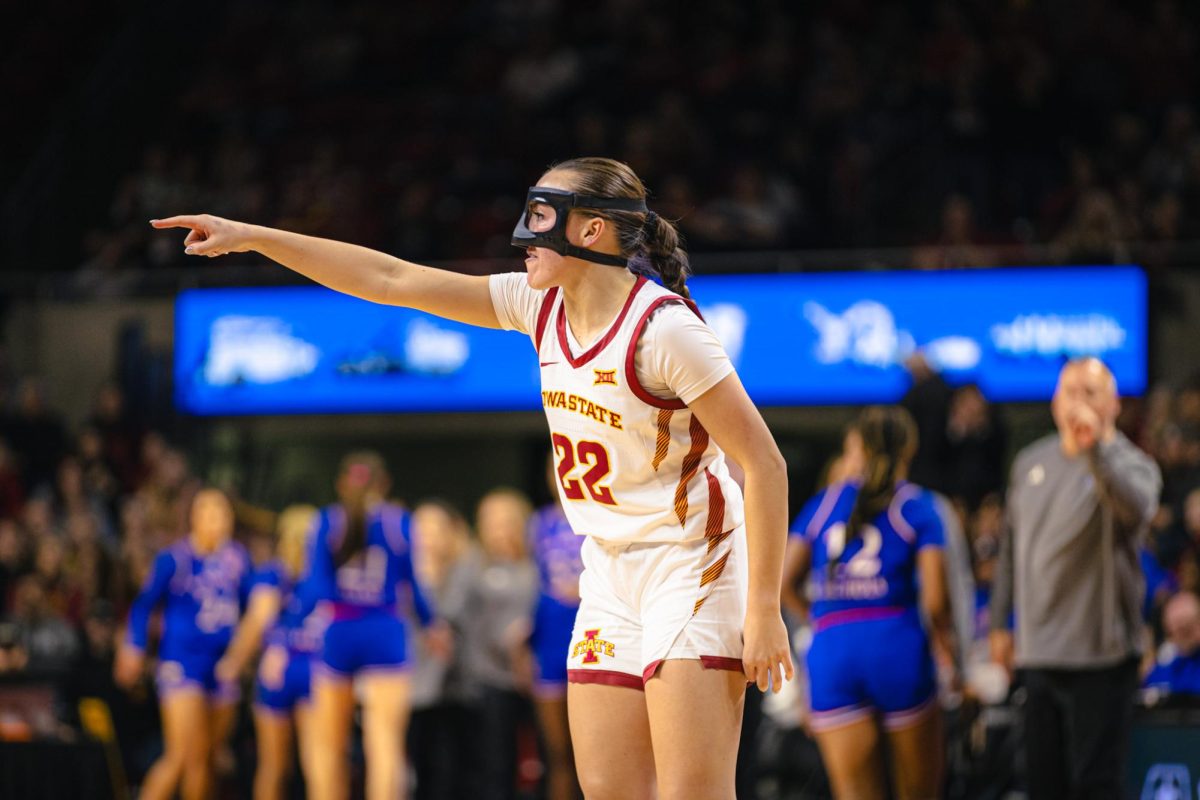COLUMN:Affirmative action reasonable, but unfair
December 6, 2002
I guess since I’m a minority, whenever something arises like the recent flap in the Daily about how some minorities get priority scheduling, I should expect to be asked, “You’re a minority, what the hell is wrong with you minorities?” That’s too bad, because I’ve never really trusted my ability at representing the whole minority community, especially since I own more than one Garth Brooks record.
Still, though, I’m glad this issue has been brought up because at least Iowa State is now primed for the controversy nationwide. This week, the Supreme Court — for the first time in more than two decades — is looking to change affirmative action in college admission processes. The present case was brought up by two white applicants to the University of Michigan’s law and undergraduate school, who claimed they were rejected because of their race.
The court’s decision, likely to be handed down sometime this summer, could drastically affect race-based initiatives.
I don’t think anyone has to worry about being turned away from Iowa State’s undergraduate school —they’ll let people in as long as there’s room enough in the lecture halls for students to stand tippy-toe with their hands above their heads.
On the other hand, Iowa State is famous for its aggressive minority recruiting, even before it was announced this week that the local high school is a World’s Fair of diversity compared to us. There are a number of scholarships that ISU offers to minorities; I received a George Washington Carver scholarship as part of my National Merit scholarship.
But given the tendency for minorities to be in the, well, minority, the money given to race-conscious scholarships is only a small percentage of Iowa State’s total financial aid.
Numbers aren’t important, though; race-based scholarships, no matter how you try to play them down, are discrimination in the simplest sense of the word. If you are white, you don’t get them — can it be any more exclusive than that? And whites aren’t the only ones who should balk at the concept behind race-based initiatives.
Color was never an accurate way to judge a person, so we shouldn’t expect it to be any better of a standard to use in awarding scholarships.
For example, the University of Maryland used to have a scholarship for African-Americans only. The Fourth Circuit of the U.S. Court of Appeals pointed out, though, that a Jamaican citizen received the scholarship, showing that the university was more interested in having an applicant of the correct color rather than following the original intent of the scholarship, which was to make up for past discrimination against Maryland’s African-Americans.
In many other scholarship programs, Asian-Americans are often flat-out denied, because we, as Newsweek put it in 1971, are “outwhiting the whites” and don’t need help.
Unfortunately, there is a world of difference between the educated Chinese who came in the 1960’s and Cambodian war refugees who are worse off than the “disadvantaged minorities,” a term used to refer to all non-Asian minorities.
But the most obvious problem, if you are a typical ISU student, is that you are being nailed for acts of slavery and discrimination that are as historically remote and appealing to you as 19th century dress. And unfortunately, there’s a tendency for people who make honest complaints about this to be treated as if they had all the tact and racial sensitivity of a swastika.
The plain truth is that whites today are not all equally accountable for past discrimination, if they are at all. But before we do away with affirmative action, it’s important to remember what its intent originally was. It is wrong to think that it somehow drove us away from the ideal colorblind society, as if America would’ve just gotten together to hold hands and sing “Kumbaya” after the violent overthrow of Jim Crow laws. Although people have tried to turn Martin Luther King Jr., with his “I Have a Dream” speech, into an opponent of affirmative action — even an idealist like him remarked, “A society that has done something special against the Negro for hundreds of years must now do something special for the Negro.”
If it weren’t for affirmative action, we wouldn’t even be able to imagine, with a straight face, a society that doesn’t need affirmative action.
So the real issue is, is there still enough discrimination in our society to keep affirmative action around?
I don’t have the space or the desire to prove that here. A few summers ago I worked on a roofing crew with a skinhead who had the Confederate flag and the words “The South Will Rise Again” tattooed on his arms, and even he didn’t think himself to be really racist. Unfortunately, most racism is not as harmless or as easy to spot as my co-worker’s body art, but we should be wary of what lies behind subtle trends, like how whenever affirmative action has been suspended at a school, ethnic representation drops to numbers resembling the seventies era.
Or that even Asian-Americans, the minorities whom affirmative action opponents love most, earn on average 10 percent less than equally educated whites.
But with the recent Supreme Court activity, supporters of both sides should be pleased that affirmative action is in the position to be clarified and reformed. Students here at Iowa State were right to question and bring these issues to the forefront.
Dan Nguyen
is a senior in computer
engineering and journalism and mass communication from Iowa City.






